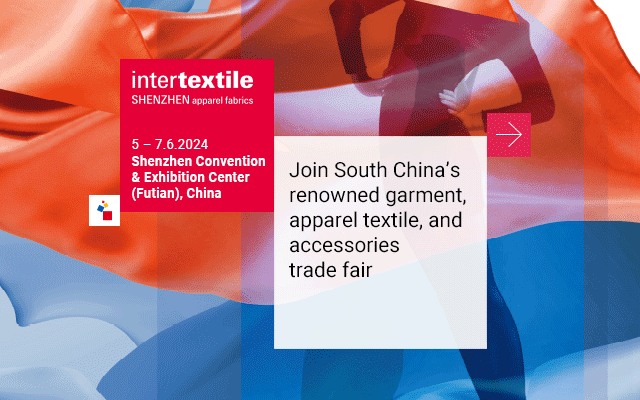Interviews
Your go-to source for news, anytime, anywhere! Insightful industry information from the textile, apparel & fashion world with our news app
Download Now
Your go-to source for news, anytime, anywhere! Insightful industry information from the textile, apparel & fashion world with our news app
Download Now
Your go-to source for news, anytime, anywhere! Insightful industry information from the textile, apparel & fashion world with our news app
Download Now
Your go-to source for news, anytime, anywhere! Insightful industry information from the textile, apparel & fashion world with our news app
Download Now
Proposed changes to Indian e-com rules 'deterrent' for growth: IAMAI
28 Jul '21
3 min read

Pic: Shutterstock
Terming the proposed amendments to the Consumer Protection (E-Commerce) Rules 2020 as a 'deterrent' for the industry's growth, the Internet and Mobile Association of India (IAMAI) recently raised its concerns and pointed out several ambiguities from an e-commerce business standpoint, which, it claimed, are likely to have unintended negative consequences for consumers.
IAMAI has suggested excluding the entire value chain from the ambit of e-commerce definition, clarifying the flash sale concept and confining the rules to protect the rights and interests of the consumers as “in its current form, they fall under the jurisdiction of Competition law, legal metrology law, intermediary law, etc”.
In a statement, the association said although it supports the government's initiatives and regulatory interventions to protect consumer interests, the proposed amendments to the rules raise several concerns and ambiguities from an e-commerce business standpoint that are also likely to have unintended negative consequences for consumers.
The draft e-commerce rules released by the government on June 21 propose a ban on fraudulent flash sales and mis-selling of goods and services on e-commerce platforms. Appointment of chief compliance officers and grievance redressal officers are also among the key amendments proposed.
The government recently extended till August 5 the deadline for public comments on the proposed amendments. The last date was July 6 earlier.
IAMAI highlighted that the amendments seek to regulate the entire e-commerce supply chain, many elements of platform-to-business (P2B) and business-to-business (B2B) e-commerce, which are beyond the remit of the parent Consumer Protection Act (CPA).
The amendments also fail to provide a level-playing field between online and offline e-commerce/retail, IAMAI said, adding that e-commerce platforms will face several restrictions and an increased compliance burden under the amendments.
''However, the same will not be applicable on the brick-and-mortar stores. Also, implementation of the amendments in the current form will significantly increase the compliance burden on MSMEs [micro, small and medium enterprises] as well as for start-ups who are not even in the e-commerce business, but provide services to e-commerce,'' IAMAI noted.
In its submission to the consumer affairs ministry, IAMAI recommended that clauses dealing with cross-selling, fall back liability, re-registration with the department of promotion of industry and internal trade will only lead to over-regulation of the sector and impede innovation and access of small sellers to marketplace platforms.
On flash sales, IAMAI suggested that a normal brick-and-mortar store can offer flash sales and therefore, there is no reason to restrict these flash sales on an e-commerce platform.
On the clause of mis-selling, the association pointed out that this is in contradiction with sellers' liabilities in e-commerce rules and the intermediary role that must be performed by all marketplace e-commerce entities under the foreign direct investment laws and the Information Technology Act.
IAMAI has suggested excluding the entire value chain from the ambit of e-commerce definition, clarifying the flash sale concept and confining the rules to protect the rights and interests of the consumers as “in its current form, they fall under the jurisdiction of Competition law, legal metrology law, intermediary law, etc”.
In a statement, the association said although it supports the government's initiatives and regulatory interventions to protect consumer interests, the proposed amendments to the rules raise several concerns and ambiguities from an e-commerce business standpoint that are also likely to have unintended negative consequences for consumers.
The draft e-commerce rules released by the government on June 21 propose a ban on fraudulent flash sales and mis-selling of goods and services on e-commerce platforms. Appointment of chief compliance officers and grievance redressal officers are also among the key amendments proposed.
The government recently extended till August 5 the deadline for public comments on the proposed amendments. The last date was July 6 earlier.
IAMAI highlighted that the amendments seek to regulate the entire e-commerce supply chain, many elements of platform-to-business (P2B) and business-to-business (B2B) e-commerce, which are beyond the remit of the parent Consumer Protection Act (CPA).
The amendments also fail to provide a level-playing field between online and offline e-commerce/retail, IAMAI said, adding that e-commerce platforms will face several restrictions and an increased compliance burden under the amendments.
''However, the same will not be applicable on the brick-and-mortar stores. Also, implementation of the amendments in the current form will significantly increase the compliance burden on MSMEs [micro, small and medium enterprises] as well as for start-ups who are not even in the e-commerce business, but provide services to e-commerce,'' IAMAI noted.
In its submission to the consumer affairs ministry, IAMAI recommended that clauses dealing with cross-selling, fall back liability, re-registration with the department of promotion of industry and internal trade will only lead to over-regulation of the sector and impede innovation and access of small sellers to marketplace platforms.
On flash sales, IAMAI suggested that a normal brick-and-mortar store can offer flash sales and therefore, there is no reason to restrict these flash sales on an e-commerce platform.
On the clause of mis-selling, the association pointed out that this is in contradiction with sellers' liabilities in e-commerce rules and the intermediary role that must be performed by all marketplace e-commerce entities under the foreign direct investment laws and the Information Technology Act.
Fibre2Fashion News Desk (DS)
Popular News
Leave your Comments
Editor’s Pick



20240504122910.png)




























-Ltd..jpg?tr=w-120,h-60,c-at_max,cm-pad_resize,bg-ffffff)





.jpg?tr=w-120,h-60,c-at_max,cm-pad_resize,bg-ffffff)
.jpg?tr=w-120,h-60,c-at_max,cm-pad_resize,bg-ffffff)






